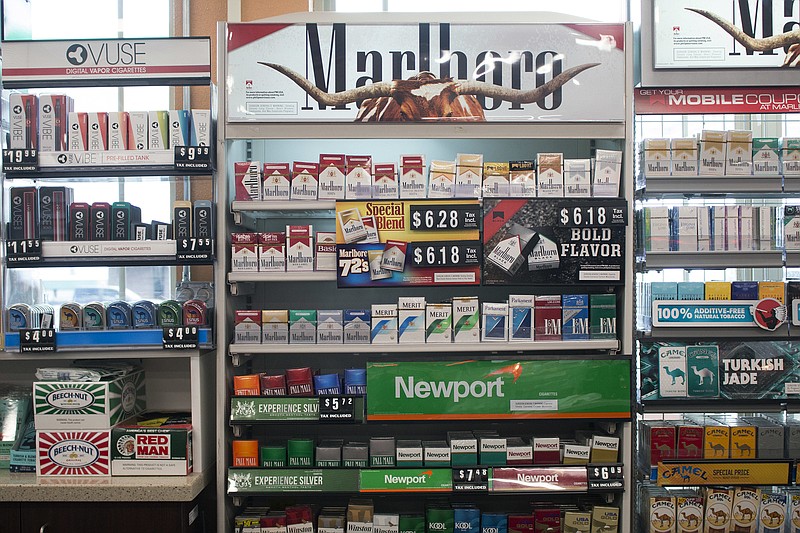Strong tobacco retail licensing has a measurable effect on teenagers' use of tobacco products, according to a report released last week by the American Academy of Pediatrics.
The tobacco retail license (TRL), which essentially is licensing someone to sell tobacco products, helps communities fund compliance checks and enforcement of regulations prohibiting tobacco sales to minors. They also help set penalties for people who choose to sell tobacco to minors.
In Missouri, only St. Louis County has a TRL on record at this time, said Stan Cowan, a research aid with the University of Missouri School of Medicine.
"A strong local TRL ordinance that provides adequate resources to fund regular compliance checks and enforcement may result in large reductions in the use of cigarettes and may also result in reduced e-cigarette use," according to the report. "The benefits of these policies may extend into early adult life."
The report, based on a study done in Southern California, queried 2,097 11th- and 12-graders who participated in the Southern California Children's Health Study. (The mean age of the children was 17.3.)
Researchers received follow-up responses from 1,553 of the participants after they reached 18. (The mean age of the participants at that time was 18.8.)
During each survey, subjects were asked if they had tried e-cigarettes, cigarettes, cigars or hookah and the number of days each product was used in the past 30 days.
About a third of participants lived in a jurisdiction with strong TRLs. The others lived in jurisdictions that had little or no regulation. Participants living in the jurisdictions with the strictest regulations had lower odds of ever using a cigarette, according to the report. About 13 percent initiated cigarette use in the strictest areas, about 18 percent in the least restrictive areas.
Although Jefferson City does not have tobacco licensing, its leadership has adopted ordinances to curtail youth tobacco use, Cowan said.
The city passed a ban on smoking in restaurants in 2003. That ordinance, however, didn't apply to bars that derived at least 50 percent of their income from the sales of liquor, wine or beer. However, then-Mayor John Landwehr vetoed the ordinance. The council did not have the votes necessary to override the veto.
In 2010, proponents of a smoking ban collected enough signatures to put a smoking ban on the November ballot. The ordinance passed handily, Cowan said.
Last April, the City Council passed an ordinance that set the minimum age for the sale of tobacco in the city at 21 instead of 18.
"Communities with smoke-free ordinances do see lower smoking prevalence by youth," Cowan said.
It made Jefferson City the 12th community in the state to pass such an ordinance. It was preceded in Missouri by Columbia, Kansas City, Gladstone, Independence, Liberty, St. Louis County and others. There are now 18 communities in the state that have adopted the ordinance and 387 nationwide.
The Kansas City area widely supported implementing Tobacco 21 primarily because the city created a coalition between health officials and the Greater Kansas City Area Chamber of Commerce.
"They know that a healthy workforce is a more productive workforce," Cowan said. "(The coalition) wants students who graduate from tech schools, grad schools and high schools to be healthier."
It contends if it can stall youth from starting tobacco or prevent them from taking up tobacco entirely that will benefit current and potential employers.
"When larger employers look at coming into a community, they look at, 'How healthy is that community?'" Cowan said.
While the ordinances have helped reduce the number of youth who report tobacco use in Jefferson City, Cowan said, a TRL would add to the barriers placed between youths and tobacco use.
A challenge to having TRLs in Missouri stems from the state's Constitution.
The Hancock Amendment restricts the state's ability to significantly tax and spend revenues without voter approval. The Legislature can impose taxes that increase revenue but are limited to those that result in a net increase that is less than or equal to 1 percent of total state revenue, according a report from to the Missouri Legislative Academy. The amendment prevents communities from levying fees not already authorized by law.

